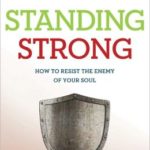Amish Eye For The Sci-Fi Guy, Part 2

Last time I talked about how my research into the Amish led to my friendship with Dutch Wolfe, a bona fide Amish romance writer. I touched on the lucrativeness of his genre and its aversion to sex, both overt and implied. In part 2, I examine the reception to Amish Vampires in Space and speculate about the current state of Amish fiction.
Thankfully, my publisher didn’t care about sex.
Ahem … I mean, he didn’t see the Mary Salter vamping scene—the one that could turn off the typical Amish romance reader—as a problem.
Those readers weren’t really our market, after all. Amish Vampires in Space was a science fiction story with Amish characters. Not the reverse. I pressed on.
But who holds the reins?
The purity requirement in Amish romances is primarily driven by readers, not publishers. Who are those readers? Generally, they are the same women of childbearing age who frequent Christian bookstores. Their influence is also why science fiction and fantasy is difficult to find in those same stores. And since Amish romance operates as such a cash cow for the Christian Booksellers Association (CBA), it is fiercely guarded.
 This is something I didn’t fully grasp until I experienced it firsthand. I believed AViS was an interesting mental exercise. I allowed me to explore meaningful themes while trying to make the implausible, plausible. It was speculative fiction! That’s what I do!
This is something I didn’t fully grasp until I experienced it firsthand. I believed AViS was an interesting mental exercise. I allowed me to explore meaningful themes while trying to make the implausible, plausible. It was speculative fiction! That’s what I do!
The announcement of AViS didn’t just raise eyebrows, though, it raised hackles. Some couldn’t see past the title and cover. Anyone who put “Amish” and “vampires” in the same book must be evil and dark, right? And “what fellowship does light have with darkness”? 1 One of my speculative author friends had someone become angry at her just because we shared the same publishing house.
In the minds of the enraged, I was either outright evil, or picking on a people group. Consequently, they justified their ire as “defending the Amish.” One Amish romance writer repeatedly mocked the concept on social media, then attacked me personally. She said I shouldn’t have written about the culture unless I had Amish background like she did. I was exploiting the Amish!
When I mentioned this encounter to Dutch, he said that everyone who writes about the Amish exploits them to a degree. They’re all using another culture for personal gain.
Raising their barn
Beyond the taboo on sexuality, the typical buggy-and-bonnet romance paints a picture of Amish life that is simply untrue. Their “Amish” are near-mythical beings, living in harmony with God, earth, and man. They are the epitome of Christian behavior, in the same way the glammed-up models on the covers suggest physical perfection. 2
As a writer, I can’t help but wonder if that portrayal is healthy.
 With my earlier DarkTrench trilogy I speculated about a world under sharia law. The premise grew from the fact that there are some in the world who would like to see that very thing happen. Whether my particular vision of the future could realistically happen or not isn’t important. The place of speculative fiction is to take an idea and extrapolate, to breathe it into life within the pages of the novel. To see what that version of the future might look like. One of the criticisms leveled against that series, however, was that I painted the culture as too bleak. That the denizens of this future sharia world were all bad or evil.
With my earlier DarkTrench trilogy I speculated about a world under sharia law. The premise grew from the fact that there are some in the world who would like to see that very thing happen. Whether my particular vision of the future could realistically happen or not isn’t important. The place of speculative fiction is to take an idea and extrapolate, to breathe it into life within the pages of the novel. To see what that version of the future might look like. One of the criticisms leveled against that series, however, was that I painted the culture as too bleak. That the denizens of this future sharia world were all bad or evil.
In the case of Amish fiction, though, we have the opposite scenario. We have a real culture being portrayed in a fantastical, near-utopian way. It seems to me (donning my speculative hat again) that there could be at least two unanticipated and unhealthy consequences of such a thing.
One is that the unreal portrayal could create a standard that no real human, Amish or not, could ever obtain. How does the typical reader of Amish fiction judge her/his spouse when compared to Jebediah the chaste and holy?
The other, possibly more worrisome, result is that the culture could be seen as so pristine that real problems that happen within the real Amish community could be overlooked or dismissed.
 Are these speculations real concerns? And if they are, should Amish romance really be such a large part of the Christian market? I don’t know, but I think it is something that bears discussion.
Are these speculations real concerns? And if they are, should Amish romance really be such a large part of the Christian market? I don’t know, but I think it is something that bears discussion.
Back to the sci-fi
With AViS and my recently released sequel Amish Zombies from Space, my intent was never to exploit or offend. I simply wanted to tell stories. And with Dutch’s guidance, I endeavored to write Amish characters as real people, not as caricatures of spiritual perfection. They are just as flawed and conflicted as their non-Amish counterparts.
I hope I’ve done them justice.
And I really hope Dutch gets to write his own speculative novel someday.
- 2 Cor. 6:14. The text is actually warning Christians against being personally “unequally yoked” with non-Christians. It is not talking about the combination of “light” and “dark” ideas or characters in a narrative work. -Editor ↩
- My friend Dutch is one of the notable exceptions here. The Amish in his novels are as nuanced and real as he can make them. ↩











































“Beyond the taboo on sexuality, the typical buggy-and-bonnet romance paints a picture of Amish life that is simply untrue. Their “Amish” are near-mythical beings, living in harmony with God, earth, and man. They are the epitome of Christian behavior, in the same way the glammed-up models on the covers suggest physical perfection. 2 As a writer, I can’t help but wonder if that portrayal is healthy.”
Healthy? No lie is healthy. Look at the reaction it spawned, both against your work and against you personally. It is disgusting how some who call themselves Bible-believing Christians have taken a people group who live under law and not grace, whose commandments dictate even how wide the brim of a man’s hat must be, and turned them into precisely what you said, near-mythical beings practically without sin. Thank you and God bless you for having the courage to speak up and out. I wish you all God’s best, both in your writing and in your life before Him.
Thanks, H.G. Much appreciated. God bless you too.
It’s not really the idealization that gets me. I think in genre fiction, you can’t avoid idealization to an extent, and utopian or gentle fic isn’t bad in itself. It’s the omnipresence of it that gets to me, and that isn’t the reader’s fault. The publishers should be using Amish fiction to support other genres or more experimental works, but they aren’t doing that at all.
One of the things that depresses me lately is just how corrupt our leadership is. Maybe not in a mustache twirling way, but there’s way too much focusing on business and too little healthy gospel environment.
Thanks for these posts, I really enjoyed them.
I will state up front that I am heartily sick and tired to death of Amish fiction. To be fair, the romance genre is not my favourite, but seriously. how many stories can there be about Amish (and non-Amish) guys and gals falling in love? And out of love? And being shunned? etc etc ETC!!! I mean, haven’t we exhausted the well?? Why, oh why, (I wail) is this so popular among Christian women?
The bottom line is that these books are being published because they sell. They make a lot of money for the publishers. I get that. But why??? That I don’t get.
I really appreciate that comments about how unrealistic the portrait of the Amish are in the books, and how they are exalted among all others as being godly and Christian. I mean, seriously. Really?
I could rant about this for a long time, but there’s no point. Until the readers stop buying them, they will continue to dominate the Christian book market. Sigh.
Glad you enjoyed my posts, Lisa. I appreciate your comments too. Thanks for stopping by!
Honestly, how many of those people who saw the book actually read it (or even the reviews) before attacking? That’s something I cannot stand about people who make judgement based on expectations with no facts.
I thought it was a joke at first. I see loads of ridiculous stories on Amazon all the time. After stalking the reviews, I realized I was wrong and this was actually something I was interested in.